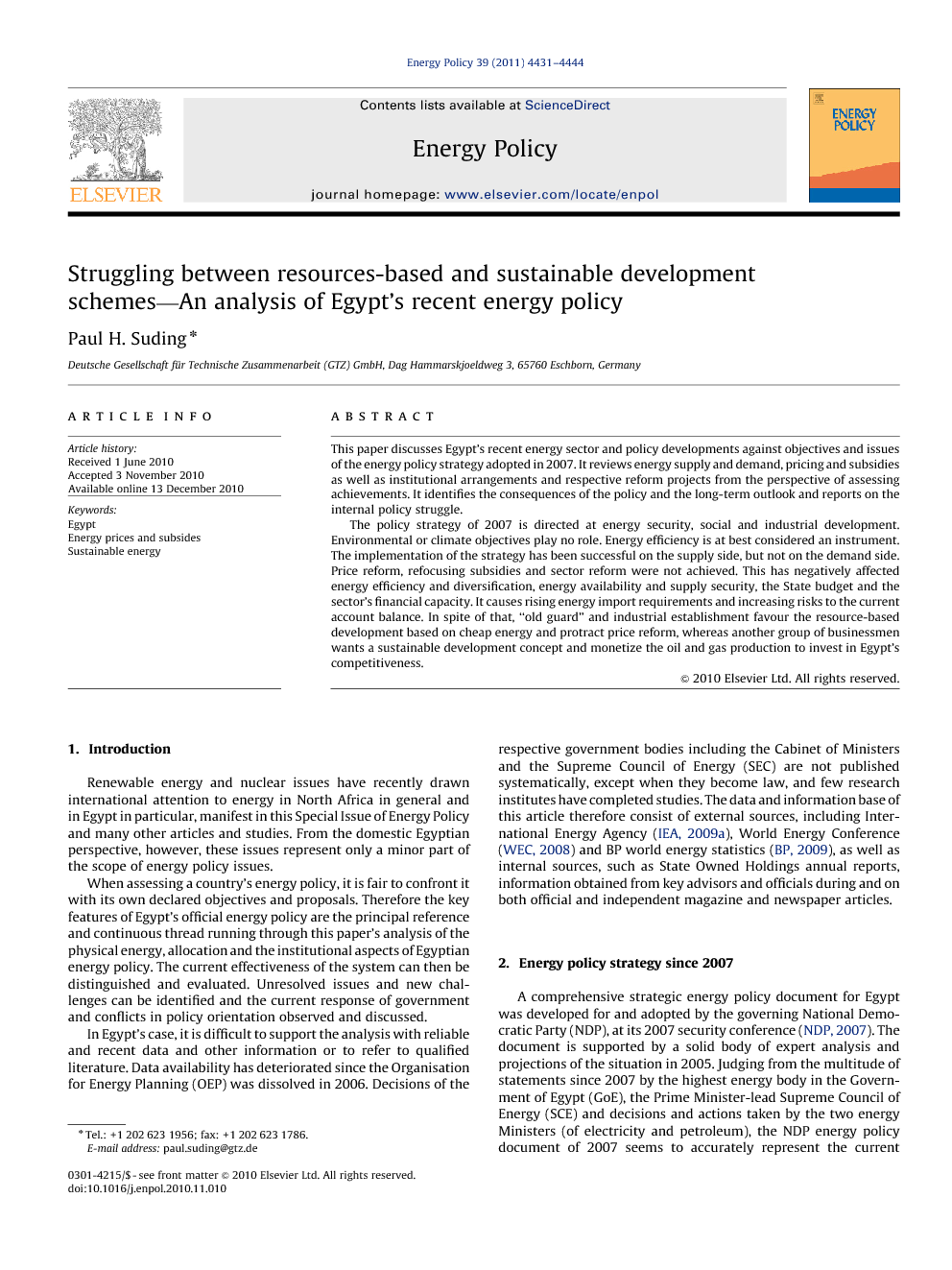ترجمه فارسی عنوان مقاله
تلاش بین منابع مبتنی و طرح های توسعه پایدار-تجزیه و تحلیل سیاست انرژی اخیر مصر
عنوان انگلیسی
Struggling between resources-based and sustainable development schemes—An analysis of Egypt's recent energy policy
| کد مقاله | سال انتشار | تعداد صفحات مقاله انگلیسی |
|---|---|---|
| 29411 | 2011 | 14 صفحه PDF |
منبع

Publisher : Elsevier - Science Direct (الزویر - ساینس دایرکت)
Journal : Energy Policy, Volume 39, Issue 8, August 2011, Pages 4431–4444
ترجمه کلمات کلیدی
مصر -
قیمت های انرژی و یارانه ها -
انرژی پایدار
کلمات کلیدی انگلیسی
Egypt,
Energy prices and subsides,
Sustainable energy

